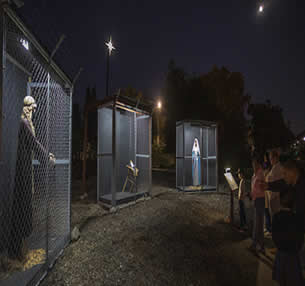Raccogliendo una provocazione di papa Francesco, secondo il quale, «il giorno di San Valentino, in alcuni Paesi è sfruttato meglio dai commercianti che non dalla creatività dei pastori» (Amoris laetitia, n. 208), nella ricorrenza del Patrono degli innamorati, abbiamo dato avvio a una serie di 4 post dedicati al tema dell’amore (questo è il terzo), ringraziando Roberto Massaro per la disponibilità a collaborare. Egli è professore di teologia morale e bioetica presso la Facoltà Teologica Pugliese, e amico dell’Accademia Alfonsiana dove ha conseguito il dottorato con una tesi sull’etica della cura (Collana Tesi Alfonsiane). Sul tema qui affrontato, ha pubblicato Si può vivere senza eros? La dimensione erotica dell’agire cristiano (EMP 2021). Proseguiamo il nostro percorso, accompagnati ancora una volta dalla figura del più grande dei re d’Israele. Ancor prima dell’episodio di Betsabea, l’autore del libro di Samuele ci presenta un rapporto del tutto singolare tra Davide e Gionata, figlio di Saul e suo erede. Il giovane pastore di Betlemme aveva appena ucciso Golia, il gigante guerriero dei Filistei, quando viene condotto da Abner al cospetto di Saul. Qui, alla corte del re, ha inizio la più bella storia di amicizia raccontata nella Bibbia: «Quando Davide ebbe finito di parlare…
In every system of morality, which I have hitherto met with, I have always remark’d, that the author proceeds for some time in the ordinary ways of reasoning, and establishes the being of a God, or makes observations concerning human affairs; when all of a sudden I am surpriz’d to find, that instead of the usual copulations of propositions, is, and is not, I meet with no proposition that is not connected with an ought, or an ought not. This change is imperceptible; but is however, of the last consequence. For as this ought, or ought not, expresses some new relation or affirmation, ‘tis necessary that it shou’d be observ’d and explain’d; and at the same time that a reason should be given; for what seems altogether inconceivable, how this new relation can be a deduction from others, which are entirely different from it». David Hume, Treatise, III.i. Anyone with some experience in reading theses in moral theology will probably have had a reaction similar to that described by David Hume (1711-1776) in this famous paragraph. In fact, words such as “ought”, “should” and “must” are often introduced without further explanation. Thus far, it is hard to disagree with…
How does the Bible help us to think about migration? The relationship between the Bible and morality is notoriously complex (see the document of the Pontifical Biblical Commission, The Bible and Morality, 2008). Looking to the Scripture for enlightenment and guidance on any moral issue requires prudence, intellectual honesty and humility. All of this is true in a particular way concerning the contemporary question of migration because it is such a sensitive and controversial issue. In this brief reflection we will consider just one biblical text, perhaps the most important verse in the Bible on this question: “The stranger who resides with you shall be to you as one of your citizens; you shall love him as yourself, for you were strangers in the land of Egypt: I the Lord am your God” (Leviticus, 19,34). The verse can be broken down into three parts: a moral obligation concerning the treatment of strangers, the historical fact that the people of Israel were once strangers and the assertion by God of his authority over his people. The key word linking these three parts is the word “for”. Taken literally, this term expresses the idea that one assertion follows logically from another, but…



